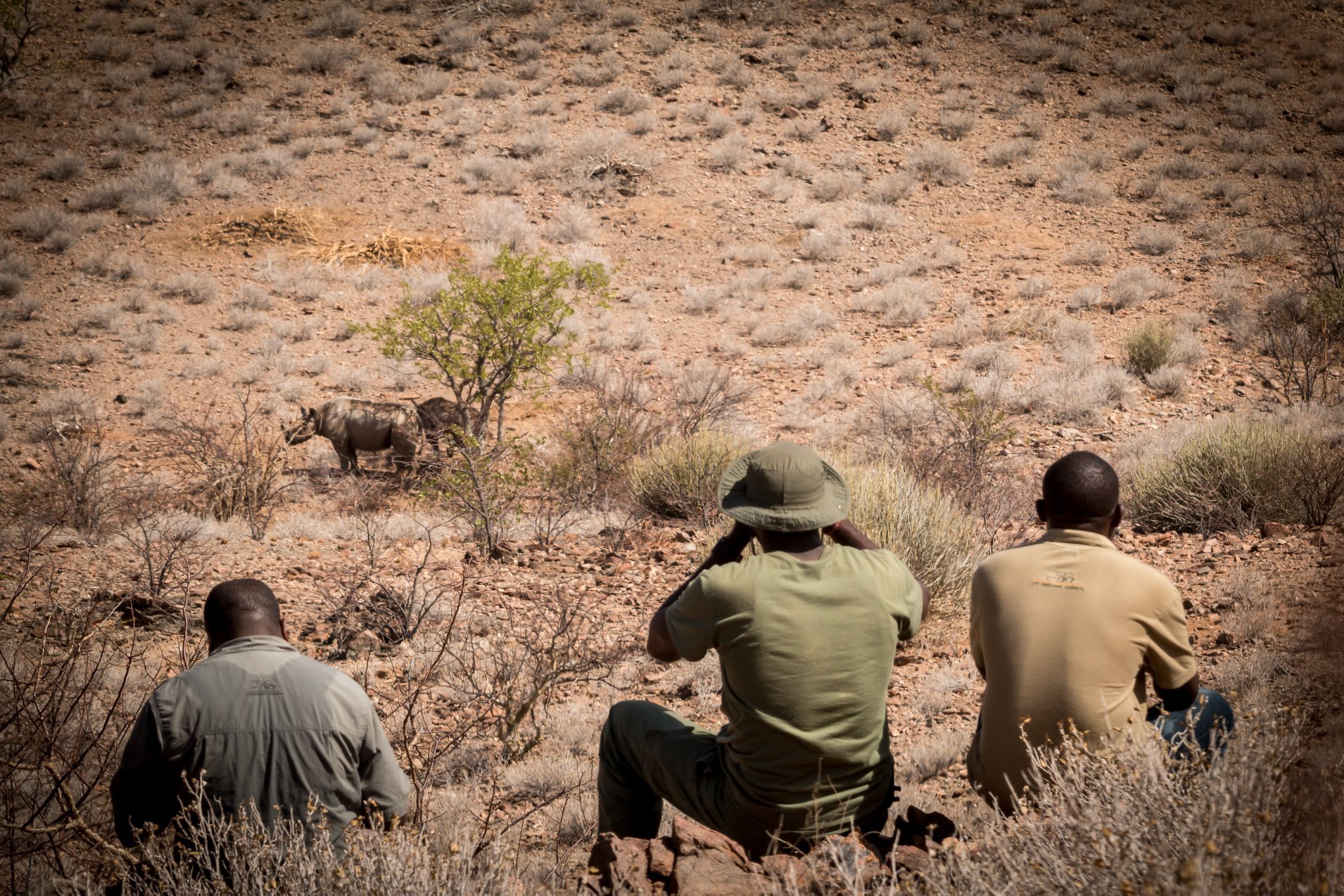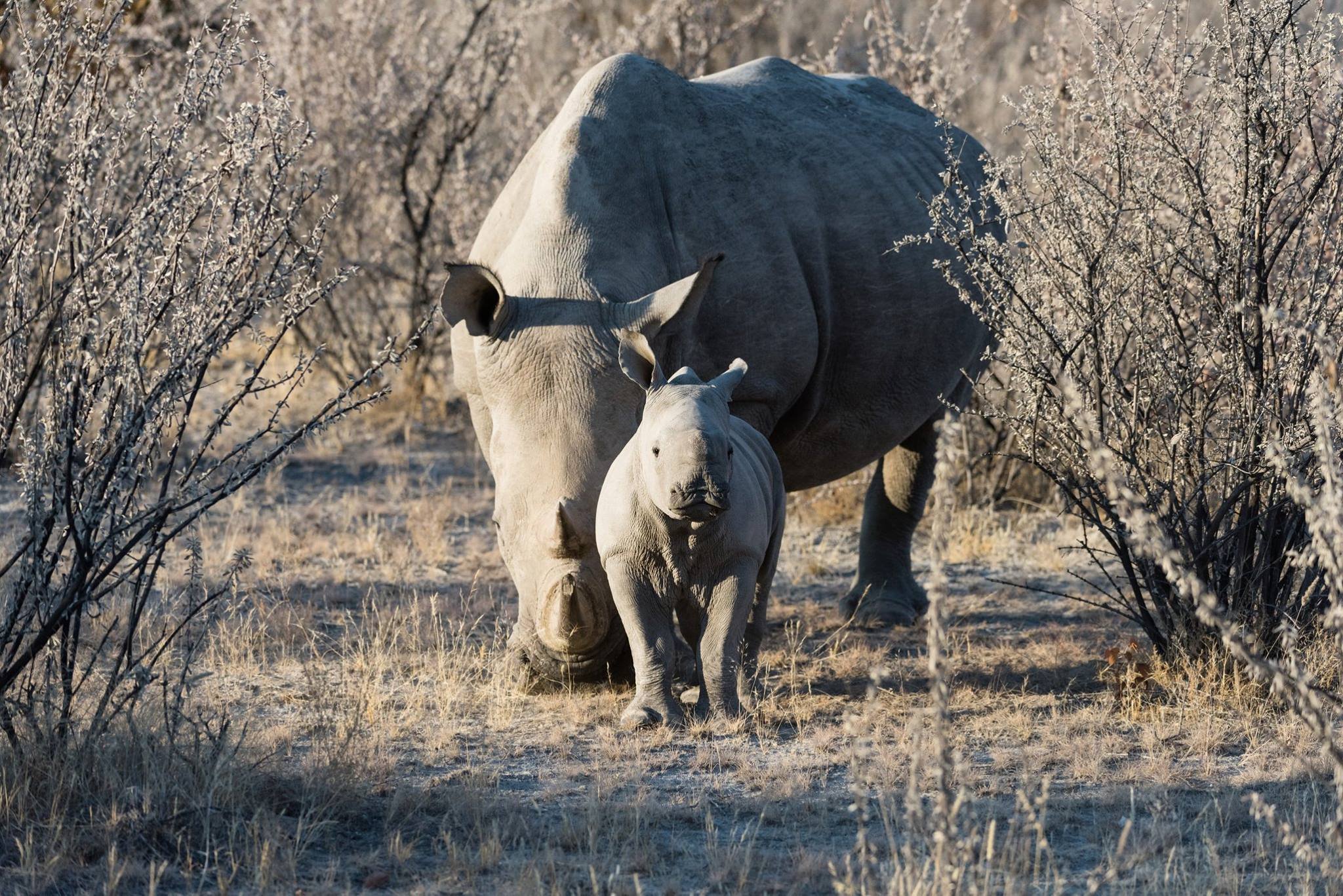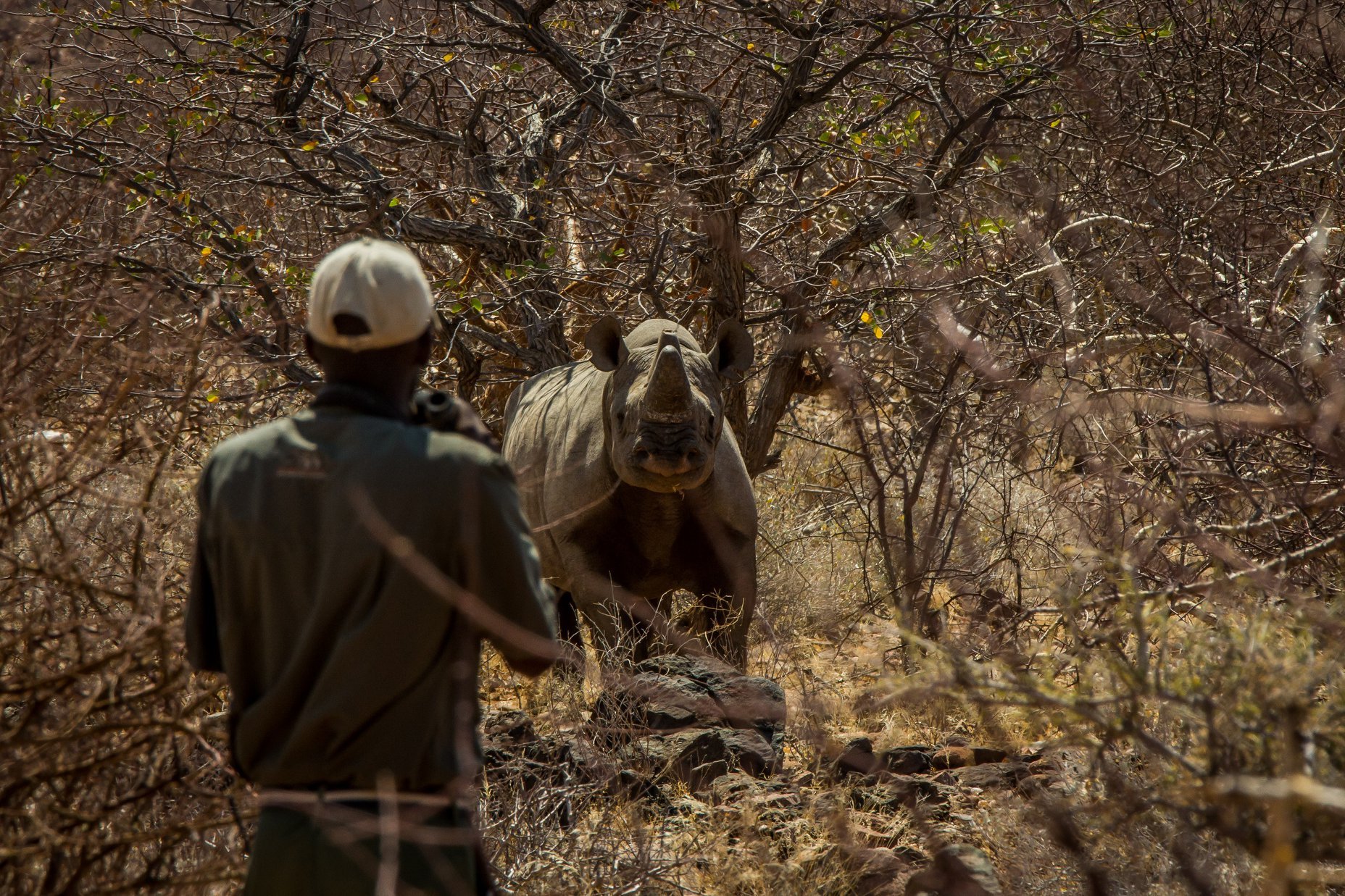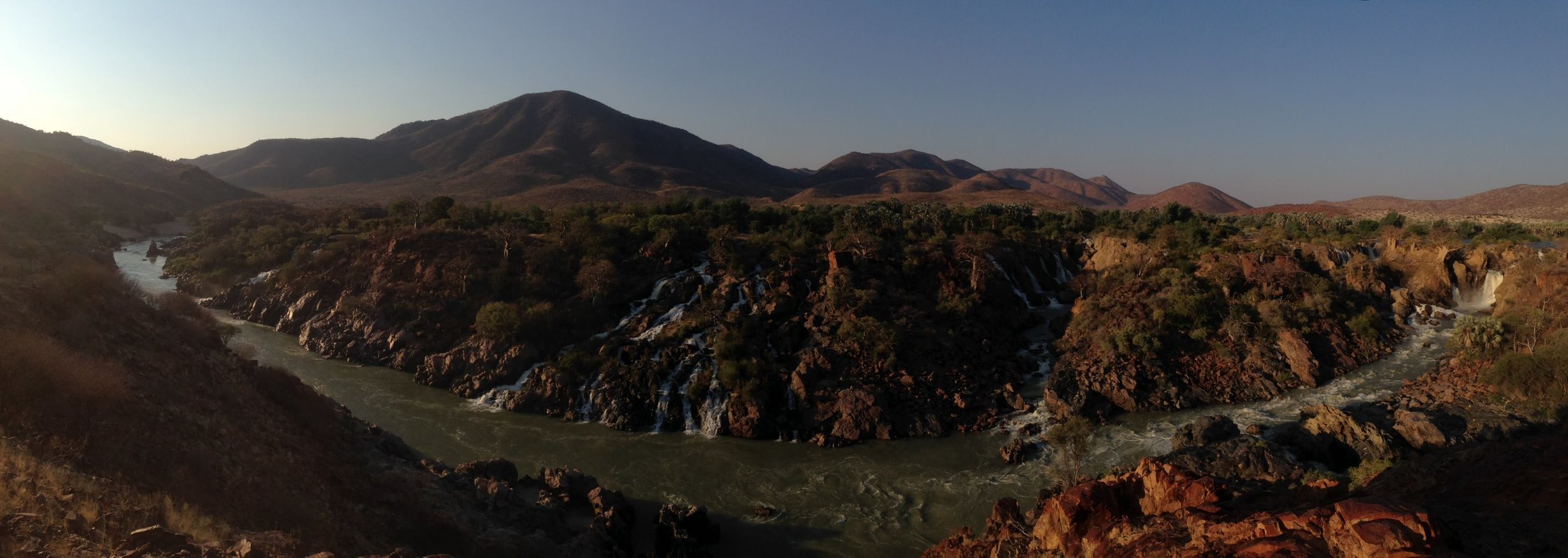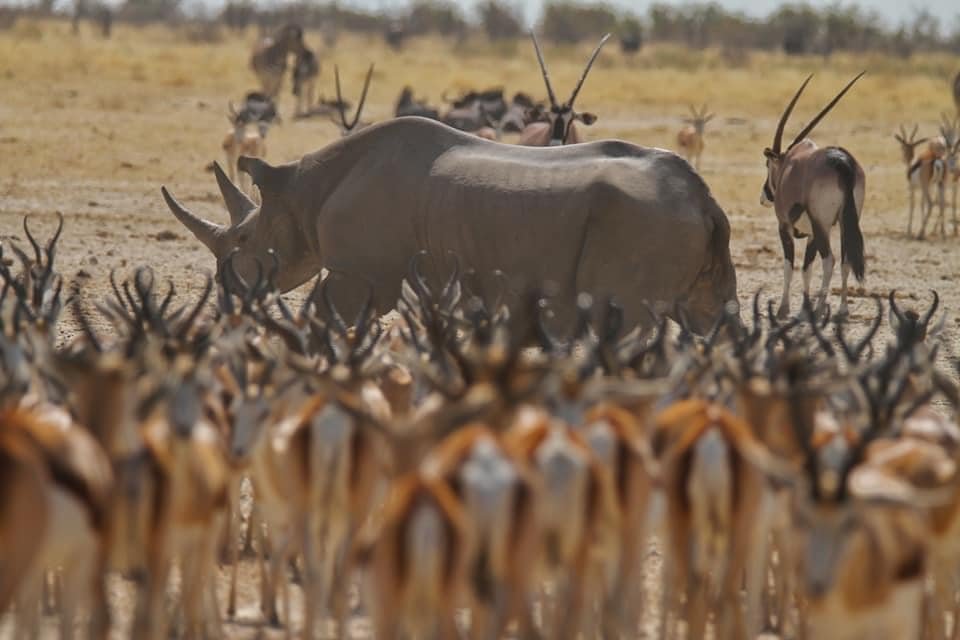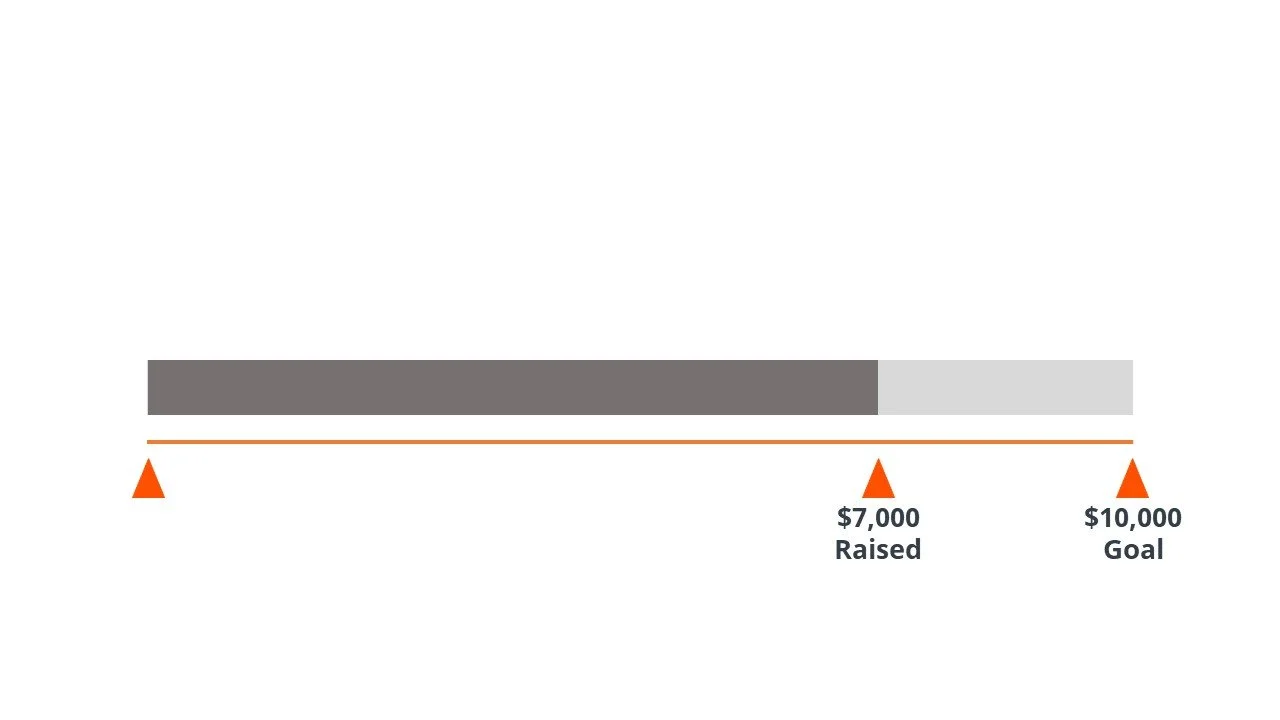
OUTFITTING RHINO RANGERS, NAMIBIA
Outfitting Rhino Rangers, Namibia
This project is aimed at equipping all 66 current Rhino Rangers with uniforms and equipment as they spend weeks at a time in the field while monitoring and protecting the desert adapted rhino of Northwest Namibia, and they need these resources to continue their patrols and in turn preserve the areas natural heritage. This project is working to help protect large tracts of land, preventing a variety of activities that have a negative impact on the environment. These include poaching, illegal mining, and illegal deforestation. Ensuring that the presence of highly endangered desert adapted black rhino and other species can continue to attract tourism revenue there reduces the likelihood of climate destructive industries taking hold. Additionally, projects like this presents travelers with an opportunity to provide direct support for conservation in a very environment-friendly way.
THE ISSUE
One of the biggest conservation threats faced in Namibia is caused by the poaching of rhino, especially in areas where communities rely on revenue from tourism. The desert adapted black rhino is one of the most iconic species that draws visitors to the remote northwest of the country and the rhino population has to be preserved in order for that draw to continue. This is especially important as these areas are already losing some individual animals as a result of the current prolonged drought that has been going on for almost seven years in some areas. These threats can all be managed, and the threatened populations preserved by using established techniques and working with organizations that have been in place for many years. However, many of these organizations also rely on the tourism dollar and funding from donors so their own resources are currently also considerably depleted. The Covid pandemic has meant that revenue from tourism has largely dried up since March 2020, and many community members who were involved in tourism and/or conservation have lost their income. As a result, it is imperative that these animals are seen to provide value to local community members, and that they are carefully monitored in order to deter members of local communities seeing poaching as an alternative source of income.
THE GOAL
The Community Rhino Rangers help protect desert adapted rhino, essential to bringing tourism into this area, and their continued presence secures a sustainable income for local communities from natural resources they steward, as well as providing protection for an endangered species - the final measure of the project’s success.
donate today!
This project has already been awarded $7,000 by global businesses in the travel and outdoor industries! Help them achieve even more impact and get to $10,000 by the end of this year.
MORE ABOUT the conservation travel foundation
The Conservation Travel Foundation (CTF) works closely with Save the Rhino Trust (SRT) to conserve Namibia’s desert-adapted black rhino population in the northwest of the country. Poaching remains the most serious threat to these rhinos, and the Rhino Ranger program was designed specifically to increase patrols and monitoring of black rhino to help prevent poaching in some of Namibia’s most remote areas. The program now supports over 60 Rhino Rangers and has made a significant impact over the last seven years in the National effort to reduce poaching. Given that the vast area of the Kunene Region (northwestern Namibia) is patrolled almost entirely by Rangers who operate on foot and who are not armed, this is an impressive and slightly surprising achievement. The Rhino Rangers operate in an extremely harsh environment, and they need regular replacement of their equipment, including uniforms, boots, packs, sleeping gear and tents.


